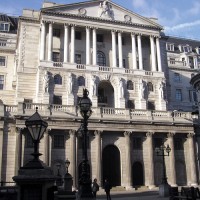
Its new round of asset purchases takes the Bank’s quantitative easing (QE) programme to £275bn as fresh fears surface about the country’s stalling recovery amid an escalation of the eurozone debt crisis.
The move comes after several members of the Bank’s Monetary Policy Committee recently suggested an extension of its bond-buying programme would help boost growth.
Citing its reasons to pump more money into the economy, the Bank said the pace of global expansion had slackened, particularly in the UK’s export markets. It also also pointed to “vulnerabilities” in the indebtedness of eurozone counties.
“In the United Kingdom, the path of output has been affected by a number of temporary factors, but the available indicators suggest that the underlying rate of growth has also moderated,” said the Bank.
It added the squeeze on households’ real incomes and the fiscal consolidation are likely to continue to weigh on domestic spending while the constraints in bank funding may restrict the availability of credit to consumers and businesses.
Revised figures show the UK economy managed just 0.1% growth in the second quarter – against a previous reading of 0.2% – whilst first quarter growth was revised down to 0.4%.
Up until now arch-dove Adam Posen has been the only MPC member to argue for a new injection of monetary stimulus.
The new round of QE suggests the Bank has put inflationary concerns on the backburner as fears mount the UK could be on the verge of a double dip recession.
Inflation, as measured by the CPI, currently stands at 4.5% – more than double the Bank’s target rate.
Meanwhile, the Bank held interest rates at their historical low of 0.5%, as was widely expected. Rates have now been held at 0.5% since March 2009.
In 2009 George Osborne, then shadow Chancellor, slammed Labour Chancellor Alistair Darling’s mooted emergency plan to print more money.
Osborne said at the time: “The very fact that the Treasury is speculating about printing money shows that Gordon Brown has led Britain to the brink of bankruptcy.
“Printing money is the last resort of desperate governments when all other policies have failed. It can’t be ruled out as a last resort in the fight against deflation, but in the end printing money risks losing control of inflation and all the economic problems that high inflation brings.”















